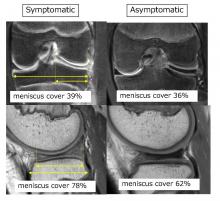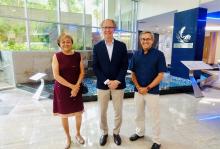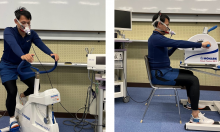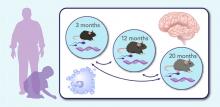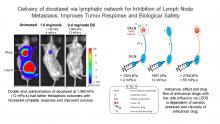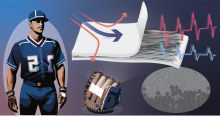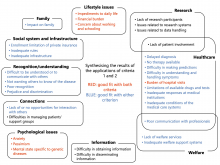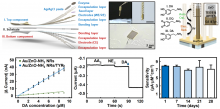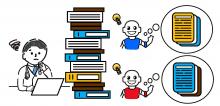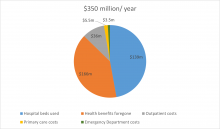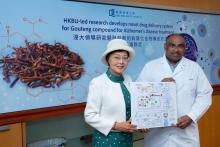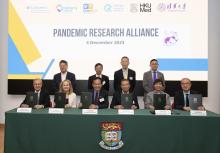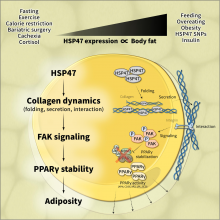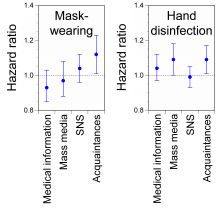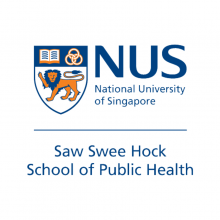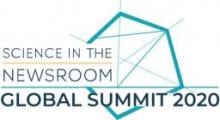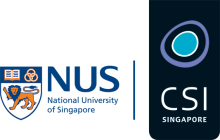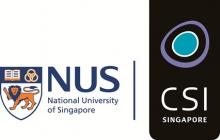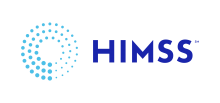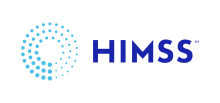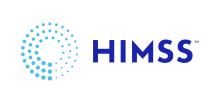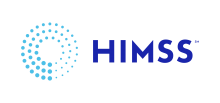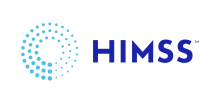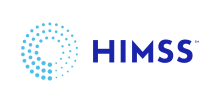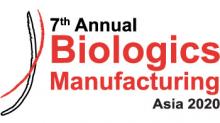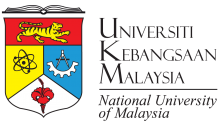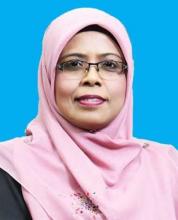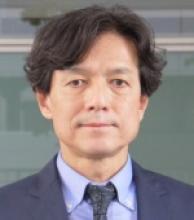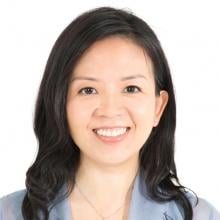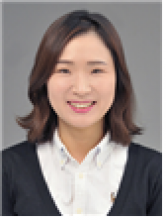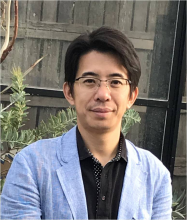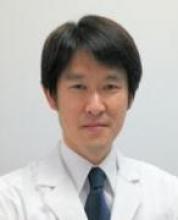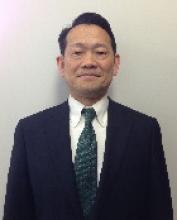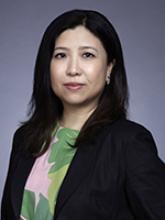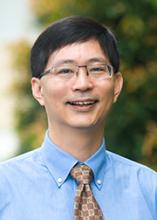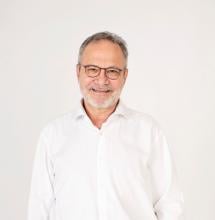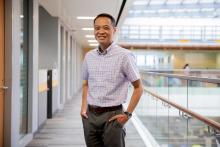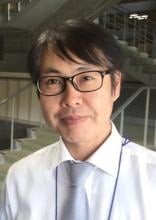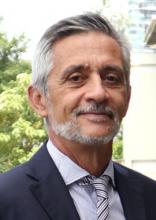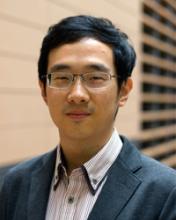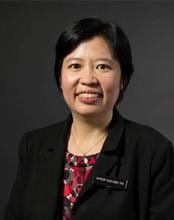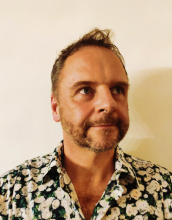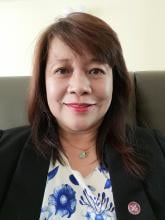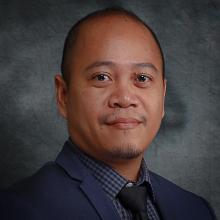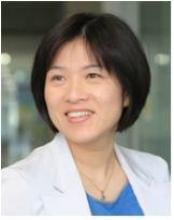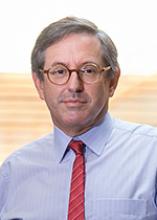Medicine & Healthcare
News
16 Feb 2024
Researchers at Osaka Metropolitan University assess why post-operative symptoms such as pins and needles, sudden cold, burning, itching, and numbness in the limbs remain in patients suffering from cervical spondylotic myelopathy, even after surgery. The researchers also evaluated the patients’ satisfaction with postoperative treatment. They found that it was lower for those who still had paresthesia in their hands and feet, regardless of whether their motor symptoms had improved or not.
15 Feb 2024
Vaccines and therapies based on messenger RNA could be more readily delivered due to a non-toxic polymer that protects RNA and controls its release inside cells.
08 Feb 2024
A new coating for tiny vaccine carriers allows vaccines to remain in the body for longer.
07 Feb 2024
Elucidating why some patients with specific joint deformities are symptomatic while others are not
06 Feb 2024
The estate of the late Ms Diana Koh gifted S$1M to Duke-NUS Medical School and NUS Medicine to fund young cancer researchers and raise awareness about cancer research advances. The gift establishes research funds, grants, prizes, and learning series to support innovative approaches to cancer treatment by the next generation of scientists and clinicians.
30 Jan 2024
A team of researchers from Osaka Metropolitan University assessed the feasibility of conducting cardiopulmonary exercise testing with the upper limbs as an alternative to the conventional method that uses the lower limbs. The researchers investigated the relationship between heart rate and oxygen uptake during exercise stress tests using a cycle ergometer and an arm crank ergometer, and estimated maximal oxygen uptake. The study participants were 17 male collegiate athletes from rowing and cycling clubs. The results showed that the estimated maximal oxygen uptake for both rowing and cycling groups was lower on the arm crank ergometer than on the cycle ergometer. Additionally, this study showed that exercise testing using an upper extremity ergometer underestimates cardiopulmonary function, regardless of upper limb training status.
29 Jan 2024
A new technology to increase visibility of cancer cells to the immune system using CRISPR has been developed, and could lead to a new way to treat cancer.
26 Jan 2024
- DGIST Prof. Kim Sohee and team develop soft, flexible, and highly durable brain electrode technology.
- Expected to be used in brain-machine interfaces without causing tissue damage, and to treat brain diseases.
15 Jan 2024
Unleashing stem cells from dog urine, Electronic Tongue, Tapping into human motion energy, How neurons network, and A radical use for plastic bags. Plus Communicating science two decades on. Read all in the latest Editor's Choice.
12 Jan 2024
Much is known about the added complication to pregnancy when it comes to the age of the mother, but recent studies show that the age of the father can also heighten the risk of neurodevelopmental disorders. A team of researchers has explored the impacts of paternal aging on microRNAs, the molecules that play a crucial role in regulating gene expression.
12 Jan 2024
Tohoku University researchers have unveiled a new approach to treating lymph node metastasis. The process invovled administering anticancer drugs directly into the lymph nodes, producing better outcomes and lessening the side effects commonly associated with cancer treatment.
10 Jan 2024
Novel findings from a preclinical head-to-head comparison show that administering a COVID-19 vaccine as a nasal spray rather than a subcutaneous injection enhances the body’s long-term immune memory, thereby increasing the vaccine’s overall effectiveness. This research could pave the way for a COVID-19 vaccination strategy that depends on fewer boosters to achieve the same level of protection against SARS-CoV-2 viruses.
28 Dec 2023
An international research group has engineered a novel high-strength flexible device by combining piezoelectric composites with unidirectional carbon fiber. The new device transforms kinetic energy from the human motion into electricity, providing an efficient and reliable means for high-strength and self-powered sensors.
22 Dec 2023
Researchers from Osaka Metropolitan University assessed the correlation between human mobility restrictions and the medical costs associated with lifestyle-related diseases during the COVID-19 pandemic in Japan. A cross-sectional study revealed that an increase in walking and public transit use was associated with reduced medical costs of lifestyle diseases. These findings implicate governments to take measures other than restricting walking and public transit during pandemics and emphasize the importance of walkable cities.
21 Dec 2023
A research group led by Osaka University and University of Hawaii Manoa found that in female fruit flies, microorganisms enhance reproductive function, boosting the number of cells that form eggs and the number of mature eggs. This is done by controlling the release of hormones to speed up cell division in the ovaries, and limiting programmed cell death. These findings could improve reproductive medicine and could aid the development of new methods to enhance fertility.
18 Dec 2023
Researchers identify RBFox1 as a key intrinsic regulator of heart muscle cell maturation, overcoming a major limitation in cardiac regenerative therapy and disease modelling and demonstrating for the first time that RNA splicing control can significantly impact this process.
13 Dec 2023
"Amaterasu" particle: a new cosmic mystery, Geckos inspire robotic device, Targeting cancer while protecting healthy cells, Honey, I shrunk the bear, Two species lost to science spotted again. Plus New Science Communication Resources. Read all in the latest Editor's Choice.
12 Dec 2023
Researchers from Osaka University created an online space for conversation, collaboration and knowledge sharing among patients with rare diseases, their families, researchers and policymakers. A series of workshops generated evidence that could contribute to new policies in the field of rare diseases and explore ways that stakeholders could be involved in the process.
08 Dec 2023
- A research team led by Professor Jang Kyung-in at DGIST developed a brain-implantable dopamine measurement sensor for applying a stable structure based on a three-electrode system.
- The developed sensor facilitates a real-time dopamine concentration analysis by using only one flexible probe, increasing expectations for its application for developing customized probes for patients with degenerative brain diseases.
07 Dec 2023
A research team led by Osaka Metropolitan University focused on generative AI as an information-gathering tool in the medical field. The results showed that one of the generative AIs suggested mostly fictitious references, while the other suggested multiple references with the same level of accuracy as the researchers. The use of generative AI in literature search suggests the possibility of efficiently collecting a vast amount of medical information, provided that users are well aware that the performance of generative AI is still in its infancy and that not all information presented is necessarily reliable. It is advised to use different generative AIs depending on the type of information needed.
07 Dec 2023
Chronic wounds cost Singapore an estimated SGD$350 million a year, accounting for approximately 0.07% of its Gross Domestic Product (GDP). The amount is a significant economic burden, considering that the country spends 4% of its GDP on healthcare. This is according to the first local study that has quantified the national cost of chronic wounds in a multi-ethnic Asian population. The research, conducted by scientists and clinicians at eight institutions in Singapore, was led by Duke-NUS Medical School and the Agency for Science, Technology and Research (A*STAR).
06 Dec 2023
A research team led by Hong Kong Baptist University (HKBU) has developed a novel drug delivery system for Alzheimer’s disease (AD). The researchers have engineered exosomes, extracellular vesicles released by cells, to effectively carry the bioactive compound Corynoxine-B extracted from the Chinese herbal medicine Gouteng to the brain of mice with AD. As Corynoxine-B can induce autophagy, a process that maintains the health of cells, this new drug delivery system using exosomes can improve cognitive function and movement while reducing the symptoms of AD.
05 Dec 2023
World-renowned professors from six leading institutions in four countries launched the Pandemic Research Alliance (PRA) today (4 December) to drive concerted research into respiratory viruses from animals to humans, improved surveillance, and new solutions to better manage the next pandemic.
30 Nov 2023
The report, titled "Pathways for transforming the cancer ecosystem: A patient-centred framework" was compiled from more than 100 interviews with key stakeholders including patients, patient support organisations and other community groups, clinicians, researchers, multiple industries, and healthcare decision-makers.
27 Nov 2023
Researchers from Osaka University found that HSP47, a collagen-specific chaperone, is a key determinant of body fat levels. HSP47 expression levels are upregulated with obesity and greater food intake and decreased with fasting, exercise, calorie restriction, bariatric surgery, and wasting syndrome, suggesting that HSP47 modulation has a profound effect on fat storage.
21 Nov 2023
Researchers from Osaka University have shown that lysosomes, key organelles for maintaining cellular stability, can be repaired once damaged by a process termed microautophagy. They identified molecules called STK38 and GABARAPs as key regulators of this process. Depletion of microautophagy regulators lead to increased cellular senescence and a shorter lifespan, indicating the importance of this process. This study is highly significant for the achievement of healthy aging and points toward new therapies for age-related diseases.
17 Nov 2023
Rapid preparation and application of a panel of clinical antibodies armed with B-BiTE for refractory malignancies
17 Nov 2023
Researchers from Osaka University found that Japanese people who used medical information were more likely to wear masks and disinfect their hands even before the COVID-19 outbreak, while those who exchanged information with acquaintances were more likely to newly start mask-wearing and hand disinfection post outbreak. This will assist in the development of risk communication strategies to promote infection-preventive behavior in a timely manner.
17 Nov 2023
Analysis of more than 80,000 diabetes patients in Singapore links elevated systolic pressure and very low diastolic pressure to higher cardiovascular mortality. Underscores need to control high systolic levels while exercising caution with low diastolic levels.
Events
07 Apr 2021 to 09 Apr 2021
Join us from 7 to 9 April 2021 at the Precision Public Health Asia 2021 Conference to find out how precision public health can improve health outcomes and equity to deliver ‘personalised’ public health.
24 Feb 2021 to 26 Feb 2021
INTERPHEX Week Osaka is Asia's leading exhibition for pharmaceutical industry, consists of 2 exhibitions for pharmaceutical technologies - INTERPHEX OSAKA (Manufacturing & Packaging) and PharmaLab Expo OSAKA (Pharma R&D and Drug Discovery).
12 Jan 2021 to 15 Jan 2021
Organised by the National Research Foundation – Prime Minister’s Office, Singapore, the ninth edition of the Global Young Scientists Summit (GYSS@one-north) will take place 12 to 15 January 2021 as a virtual event.
23 Nov 2020 to 24 Nov 2020
Global health emergencies look set to be a part of our lives. What awaits us in 2021 and what lessons can we draw from COVID-19 coverage? How can we support newsrooms and journalists for more informed and impactful journalism about global scientific, technical and human challenges? What role does journalism play in seeking solutions for a better world that is both healthy, and sustainable?
18 Nov 2020 to 20 Nov 2020
The Asia-Pacific Agri-Food Innovation Summit will focus on accelerating innovation in supply chain resilience, urban food systems, alternative proteins, and affordable nutrition. Will you be joining the conversation virtually on November 18-20?
27 Nov 2020 to 28 Nov 2020
ACRLS 2020 aims to contribute to strengthening cooperation and relationship among members worldwide and forming a strong global network by providing various benefits to robotic clinics in rapidly growing nations throughout Asia.
10 Nov 2020 to 11 Nov 2020
A gathering of healthcare leaders, key government representatives and healthcare IT experts, this conference provides an exclusive platform for you to network with your important stakeholders in Singapore’s healthcare industry.
16 Nov 2020
Optimising Clinical Trials | Commercialising Great Science | Partnering for Growth
02 Nov 2020 to 06 Nov 2020
We invite scientists, doctors, students and other delegates engaging in scientific research related to cancer to join us at Singapore’s preferred cancer conference.
01 Oct 2020 to 02 Oct 2020
The 6th annual RNA Biology Symposium jointly organized by the RNA Biology Centre of CSI Singapore (NUS), Skin Research Institute of Singapore (A*STAR), Duke-NUS Medical School, School of Biological Sciences (NTU) and Singapore-MIT Alliance for Research and Technology (SMART)
10 Jul 2020
Tohoku University is hosting an online lecture on COVID-19 on July 10. Led by top virologist Hitoshi Oshitani, the panel will share the latest on the pandemic, and discuss how history, culture and religion can help us understand the challenges ahead.
26 Jun 2020
Flattening the Curve with Digital Health: Episode 7 - Australia
18 Jun 2020
Flattening the Curve with Digital Health: Episode 6 - Thailand
10 Jun 2020
Flattening the Curve with Digital Health: Episode 5 - Japan
04 Jun 2020
Flattening the Curve with Digital Health; Episode 4 - Malaysia
02 Sep 2020 to 04 Sep 2020
Celebrating and learning from COVID 19 success stories to shape new frontiers in patient experience, healthtech and innovation.
21 May 2020
Flattening the Curve with Digial Health - Episode 2: Singapore
28 May 2020
Flattening the Curve with Digital Health: Episode 3 - South Korea
14 May 2020
Flattening the Curve with Digital Health - Episode 1 - China
14 Oct 2020 to 16 Oct 2020
Asia's Premier Partnering Event for the Global Biotechnology Industry. This year’s exhibition will be held as originally planned at Pacifico Yokohama. BioJapan partnering is available both physically and virtually. Plus some seminars will be available online.
22 Jul 2020 to 26 Jul 2020
Due to the COVID-19 pandemic affecting international travel, this year's event will be a unique blend of online and live gatherings — BIO Asia–Taiwan 2020 Online + Live, to be held July 22-26 in Taipei, Taiwan.
09 Dec 2020 to 11 Dec 2020
Singapore's long-running Pharmaceutical Manufacturing Industry learning and networking event, featuring a stellar profile of C-suite experts and firms.
03 Nov 2020 to 05 Nov 2020
Your go-to event to reach out to key decision makers in the pharmaceutical industry. The event will be delivered digitally from 3-5 November 2020.
17 Jul 2020 to 18 Jul 2020
Asia’s annual premier healthcare platform CAREhab 2020 and conference element 6th Singapore Rehabilitation Conference, will now be held online on the 17 – 18 July 2020.
07 Jul 2020 to 08 Jul 2020
IMAPAC is bringing to you 3 focus areas: Bio-Manufacturing, Bio-Analytics, and Cell Therapy Bioprocessing as part of Asia's biggest, most focussed annual bioprocessing virtual conference!

09 Dec 2019 to 10 Dec 2019
The ASEAN Emerging Researchers Conference is a flagship programme of the ASEAN Young Scientists Network; the official platform for young researchers in the region.
08 Dec 2020 to 10 Dec 2020
Asia's pharma & biotech virtual festival - Phar-East is the premier meeting place for senior executives from Asia’s pharma and biotech industry.
26 Feb 2020 to 28 Feb 2020
Japan's Leading Exhibition for Pharmaceutical R&D and Manufacturing Technologies!
26 Nov 2019 to 27 Nov 2019
Vaccine World Asia 2019 will bring together leading experts to discuss the latest technological advancements and spearhead scientific innovation in the development and manufacture of vaccines for key diseases such as Dengue, Chikungunya, Malaria, Tuberculosis etc.
07 Nov 2019
Fostering Young Intellectuals for a Better Future
Researchers
Dr. Salizar Binti Mohamed Ludin is an Assoc. Prof at the Kulliyyah of Nursing of International Islamic University Malaysia.
Dr. Louisa Chung is a Registered Nutritionist of Association for Nutrition (UK) with ten years experience in weight management and physical fitness projects. She is now working on an innovative dietary intake method which aims better result in weight loss and nutrition education.
Akira Kaneko was appointed as Professor of Parasitology of Osaka City University in 2010. Since then, he has conducted global health research with a particular focus on malaria elimination on islands in Vanuatu, Oceania and Lake Victoria, Kenya.
Dr Esther Lau specializes in clinical psychology and clinical neuropsychology. Currently, her primary line of research aims to uncover some of the complex relationships between sleep, emotional and cognitive functioning.
Jung Ah Cho is a Visiting Professor at the School of Undergraduate Studies, College of Transdisciplinary Studies, DGIST.
Hiromitsu Toyoda is an associate professor at the Graduate School of Medicine of Osaka City University.
Kazuhisa Asai is currently an associate professor at the Graduate School of Medicine of Osaka City University.
Tomoya Kawaguchi is a professor at Osaka City University. His top areas of expertise are Lung Cancer, Non-Small Cell Lung Cancer, EGFR Positive Lung Cancer, and Chronic Obstructive Pulmonary Disease.
Dr.Anna Kam's research interests include advanced technologies in aural rehabilitation, automated hearing screening, tinnitus management and auditory processing.
Dr. Yuen has dual professional qualifications as an audiologist and a speech-language pathologist (or speech therapist). He is also an experienced cochlear implant clinical specialist audiologist.
Prof. Ann Marie Chacko lead the translational efforts for a portfolio of in vivo PET, SPECT, CT and optical imaging agents that span key therapeutic areas including oncology, immunology, infectious disease and neurobiology.
Prof. Patrick Tan's research focuses on developing genomic approaches to unlock the molecular and clinical diversity of gastric cancer (aka stomach cancer)- a leading cause of global cancer mortality.
Prof Matchar's research relates to clinical practice improvement - from the development of clinical policies to their implementation in real world clinical settings
Professor Ooi Eng Eong is a clinician-scientist by training and his research on dengue is positioned at the interface between clinical epidemiology, virology and immunology. His laboratory is interested in how antibodies either protect against or enhance dengue virus infection and what viral factors influence epidemic dengue activity.
Yohei Kawano is currently and Associate Professor at the Department of Immunology, Graduate School of Biomedical and Health Sciences, Hiroshima University.
Prof. Kiyomi Shitaoka's research aims to obtain effective antibody genes and T cell receptor genes by single-cell analysis of B cell and T cell receptors on lymphocytes. In addition, to apply these genes to develop new treatments for overcoming infectious diseases and cancer.
Prof. Tomoharu Yasuda's laboratory studies how immune system is regulated through the antigen receptor, intracellular signaling and lymphocyte programming.
Prof. Antonio Bertoletti's current research focuses on the development of new immunological based therapies (TCR-redirected T cells, HLA-peptide specific antibodies) for the treatment of HBV and Hepatocellular carcinoma (HCC), and the characterization of human intra-sinusoidal hepatic immune system.
Dr. Anthony Tan is actively involved in clinical trials in Singapore and China to test the safety and efficacy of adoptively transferring T cells engineered against HCC with HBV integration in collaboration with Lion TCR Pte Ltd.
Cl A/Prof Goh Bee Tin is Head and Senior Consultant in the Department of Oral and Maxillofacial Surgery (OMS), Research Director and Deputy Director (Research and Education) at the National Dental Centre of Singapore (NDCS)Education. Her research interests include bone tissue engineering and mandibular reconstruction.
Prof. Jan is interested in how sensory processing interpret auditory inputs to the brain are transformed to underpin subjective perceptual qualities of sound such as pitch, timbre and sound source location, and how the brain learns to adapt to the statistical structure of the sounds in our environment to form efficient neural representations of sound and to support auditory scene analysis.
Prof. Hyeon- Ae Jeon is a principal investigator of Partner Group of the Max Planck Institute for Human Cognitive and Brain Sciences at the Department for Brain and Cognitive Sciences, DGIST.
Dr Yap is currently a senior lecturer and course coordinator for the Bachelor of Medical Bioscience at Monash University Malaysia. She is dedicated to toxin pharmacology and toxicology research. She has strong background in biomolecular modelling, proteomics, immunological and molecular pharmacology of bioactive toxins. She leads the Toxin Pharmacology Research Group. Her research group now focuses on molecular mechanisms of cytotoxin with the ultimate goal of developing next-generation biotherapeutics. Her research works have been featured in prominent media outlets, including the International Snakebite Awareness Day campaign. Besides active in research, she is also an education innovator who adopts various active learning strategies with technology. She teaches undergraduate units with an emphasis on student-cantered learning using the andragogy approach. Dr Michelle enjoys promoting STEM education to the public. She has organized and hosted several workshops and forums to advance the disciplines in medical sciences through research and education.
Assoc Prof Dr Loh Siew Yim is a senior lecturer at the faculty of Medicine in University of Malaya, Malaysia
Her research interest is cancer survivorship, and behavioural medicine .
Dr Paul Cliff Simon Divis is the director of Malaria Research Centre at Universiti Malaysia Sarawak (UNIMAS).
Yoon-Kyoung Cho is currently a group leader in the Center for Soft and Living Matter at the Institute for Basic Science (IBS) and a full professor in the Department of Biomedical Engineering at Ulsan National Institute of Science and Technology (UNIST) in the Republic of Korea.
Prof Yow is the Associate Head of the Humanities, Arts and Social Sciences at Singapore University of Technology and Design (SUTD) and leads the SUTD Language and Social Cognition Lab where they look at how language impacts on our cognitive functioning and understanding of the social world. Her research focuses on exploring and studying patterns of dual language use, how language environment may influence how children perceive communicative cues and how technology influences the way we communicate, and how it can be harnessed in ways that can improve or slow down the decline of cognition and social cognition.
David Virshup, M.D., is Director of the Programme in Cancer and Stem Cell Biology (CSCB) and Professor at Duke-NUS Medical School and is jointly appointed as Professor of Pediatrics at Duke University in North Carolina.
Eric Finkelstein is a Professor of the Programme in Health Services & Systems Research and the Executive Director of the Lien Centre for Palliative Care at the Duke-NUS Medical School, Singapore. He also holds appointments at NUS School of Public Health and Duke University Global Health Institute.
My PhD research entitled "No harm done? The experiences of women who inject drugs accessing harm reduction in Indonesia" examines the role of social, political and economic impacts on women who use/inject drugs and the correlation with increase rates of HIV/HCV and incarceration.
Giants in history
Sorry, nothing coming up for this discipline





